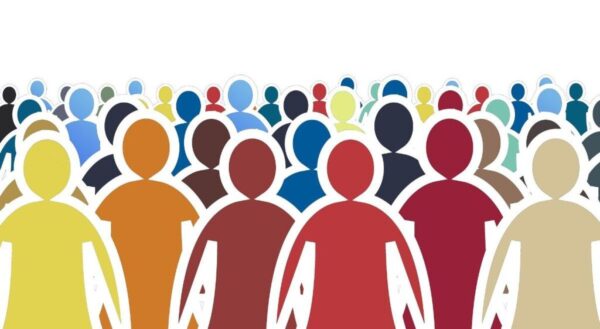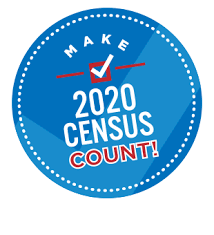
March 18 update: Households can and really should do Census work on their own to help protect Census workers form Coronavirus:
All U.S. households… can… respond to the census on their own either online at my2020census.gov, over the phone or by paper form, if they receive one. Official letters with instructions on how to participate in the national head count are expected to arrive at most homes by Friday, March 20.
—
As President of the National Council of Nonprofits Tim Delaney puts it: “If somebody is not counted, that means that the state does not receive the resources, but that person still exists and still has needs.”
As the NAACP puts it, “The entire population of the United States must be counted, not just citizens. For many reasons, it is vitally important that everyone is counted.”
The last Census count took place in 2010. Based on data gathered then, in 2016 alone, West Virginia received almost $7 billion in federal funds for programs and services like Medicaid, Head Start and other education programs, school lunches and other food programs, block grants for the treatment and prevention of substance abuse, home energy assistance, unemployment insurance, transportation , maintenance and construction of roads and bridges, and much more.
Based on Census data, West Virginia can receive as much as $2,755 per person in federal funding. As Jennifer Wells, with Our Future West Virginia says, ““There’s so much riding on the census, So much of our everyday lives are impacted. Every part of your day-to-day life is governed in some way by the census.”
So… take part!
If you are not a citizen, or otherwise worried that you risk something by taking part in the Census—don’t worry! Your responses to the 2020 Census are safe, secure, and protected by federal law. Your answers can only be used to produce statistics—they cannot be used against you in any way. By law, all responses to U.S. Census Bureau household and business surveys are kept completely confidential. There are no exceptions.
If someone is telling you otherwise, they are at best ill-informed. As the NAACP states, “Communities of color have historically been undercounted in the United States of America. Undercounting of the Black population was first required by law. The Three-Fifths Compromise of the Constitutional Convention in 1787 counted enslaved Black people as three-fifths of a person in apportioning congressional districts for the U.S. House of Representatives. Since then, the Census has severely undercounted the Black population, to great disadvantage in representation, resources and power.”
El Censo del 2020 y la Confidencialidad
https://youtu.be/zuEo-lXtVjc
——-
More from the NAACP:
The United States Constitution requires that the nation’s population is counted every ten years to ensure equal representation for all communities. The entire population of the United States must be counted, not just citizens. For many reasons, it is vitally important that everyone is counted.
The official count helps to ensure fair political representation. It is used to: allocate seats in the U.S. House of Representatives, determine the number of Electoral College votes for each state and create electoral lines for all levels of government. It also provides the foundational basis for addressing disparities in voting, education, housing, employment, healthcare, transportation, redistricting, zoning and criminal justice. If residents go uncounted, it would mean fewer seats in Congress, fewer Electoral College votes, skewed legislative boundaries, and diminished enforcement of civil rights laws. The Census count also guides distribution of $882 billion annually in federal funds to state, local and tribal governments. Programs and services at risk include schools, hospitals, community centers, roads, transportation, and public safety departments. Marginalized communities will suffer if residents go uncounted.
Communities of color have historically been undercounted in the United States of America. Undercounting of the Black population was first required by law. The Three-Fifths Compromise of the Constitutional Convention in 1787 counted enslaved Black people as three-fifths of a person in apportioning congressional districts for the U.S. House of Representatives. Since then, the Census has severely undercounted the Black population, to great disadvantage in representation, resources and power.
2020 will be the first year that the census will be online. The move from paper to a web questionnaire is intended to prevent undercount by giving more people access to the census. The next census will take place from March through July of 2020.
How Does the Census Work?
One individual in each residence will be responsible for completing the census questionnaire. This person is designated as the “head of household” and they have the option of filling out the census online, by mail or by phone. The census questionnaire will ask about the number of individuals who reside in the household in addition to basic information like: gender, ethnicity, race and age.
Step 1: Each household will receive a postcard in the mail with a unique user ID to access the census website. At this time, households can fill out the census questionnaire by telephone or online without the unique user ID. If there’s a discrepancy with identifiable information (i.e.: the address), census staff may call to verify.
Step 2: On March 12, 2020, the head of the household will be able to fill out the census questionnaire by telephone or online. Households do not need to wait until April 1, 2020 to self-respond.
Step 3: On the census website, households will be asked to enter their unique user ID, which will trigger the site to generate a unique pin that will allow individuals to log back in if they need additional sessions to fully answer the questionnaire.
Step 4: If households have not completed the census questionnaire by May 2020, the Census Bureau will begin contacting individuals. By the fourth mailing, households who haven’t responded will receive a paper form.









